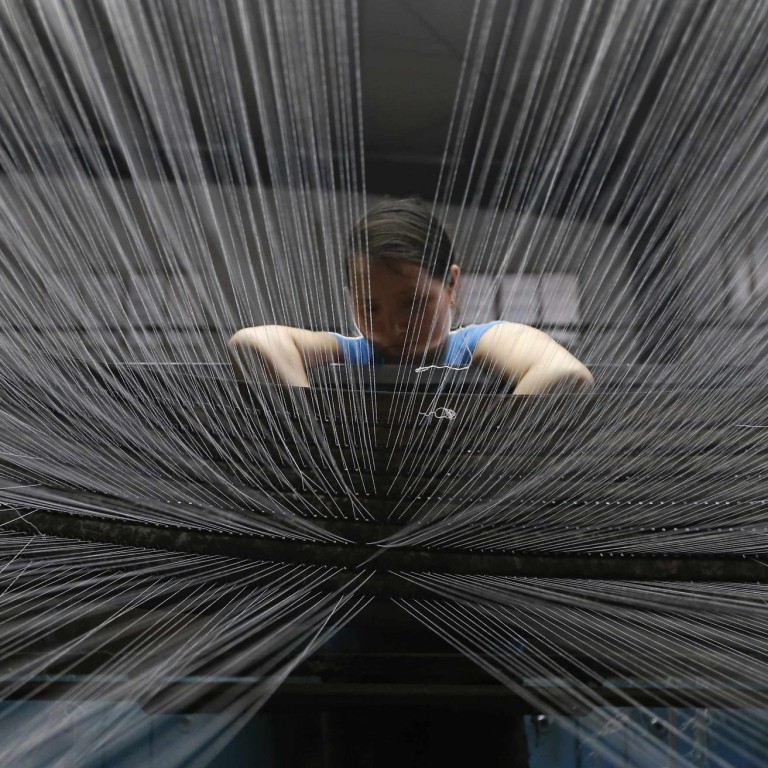
Loan guarantees fan new default risks in Hangzhou
No quick solution in sight as the failure of some private steel and textile firms to repay debts pushes their burden on to their healthier peers
A network of loan guarantees set up to improve companies' access to credit in a wealthy district of Hangzhou is creating new risks of default as some debts sour, another sign of how private firms are bearing the brunt of an economic slowdown.

The government ranks the city's Xiaoshan district as the mainland's seventh-wealthiest. One of the main drivers of its prosperity - small, private firms - is now a handicap.
"The textile industry is not a big borrower in the banking sector. The problems that we see arise when mutual guarantees go bad and textile firms are dragged in," said Robert Yang, assistant to the president at the China National Textile & Apparel Council.
The Yangtze River Delta, in which Hangzhou is a key city, is the source of a third of non-performing loans on the mainland.
Private firms often struggle to obtain credit from state-owned banks, which prefer to lend to state-owned firms due to their government backing. That trend has worsened as economic growth slows.
Steel and textile manufacturers in Xiaoshan, like other private firms around the delta, sought to overcome such obstacles by providing loan guarantees for one another to gain bank credit.
Now defaults by a few companies threaten a chain reaction that could ensnare even profitable firms, as the guarantees have left them on the hook for debts of their bankrupt competitors.
"Zhejiang's economic structural adjustment and [industrial] upgrading is at a critical stage. The risk from guarantee chains is still rather large," the Zhejiang branch of the China Banking Regulatory Commission warned in February.
Unlisted polyester yarn producer Hangzhou Jianjie Chemical Fiber was recently liquidated following the default of another textile firm whose debts Jianjie had guaranteed, reported. Jianjie's collapse in turn affected five other textile firms. In all, three billion yuan (HK$3.77 billion) in bank loans to the six firms were at risk, the paper said.
"After [Jianjie] went bankrupt and was liquidated, companies with mutual guarantees had to take on more debt," the paper quoted Zhu Rujiang, director of the Xiaoshan District Funding Chain Risk Prevention and Mitigation Leadership Group, as saying.
"They can still handle this debt, and they will have no trouble surviving, but a key requirement is that banks can't withdraw their loans."
Zhu's group was set up to mediate between banks and companies, according to the district government's website.
also reported that Hangzhou Zhongxin Steel Structure Manufacture, which makes scaffolding, had shut down and could place a further 1.2 billion yuan in bank loans to four other companies at risk.
"The crisis of mutual guarantees is very serious and there is no good solution for this problem," said Zhou Dewen, vice-chairman of the China Association of Small and Medium Enterprises in Wenzhou, another prosperous city in Zhejiang.

